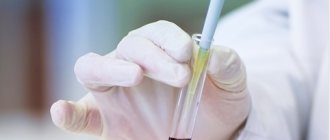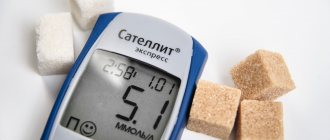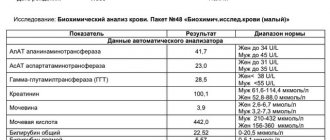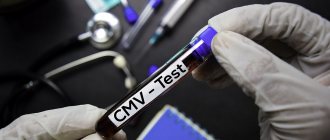General rules
- For most studies, it is recommended to donate blood in the morning, from 8 to 11 o’clock, on an empty stomach (at least 8 hours must pass between the last meal and blood collection, you can drink water as usual), and on the eve of the study, have a light dinner with limited intake of fatty foods. For tests for infections and emergency studies, it is acceptable to donate blood 4-6 hours after the last meal. If you are taking medications, be sure to notify your doctor.
- Donate blood for gastrin-17, lipid profile (total cholesterol, HDL cholesterol, LDL cholesterol, VLDL cholesterol, triglycerides, lipoprotein (a), apolipoprotein A1, apolipoprotein B) and glucose tolerance test should be strictly on an empty stomach, after 12-14 hours hunger.
- 24 hours before the test, you must avoid alcohol, intense physical activity, and taking medications (in consultation with your doctor).
- 1-2 hours before the test, you must refrain from smoking, do not drink juice, tea and coffee, and you can drink still water. Avoid physical stress (running, quickly climbing stairs), emotional excitement. It is recommended to rest and calm down 15 minutes before donating blood.
- You should not donate blood for laboratory testing immediately after physiotherapeutic procedures, instrumental examination, X-ray and ultrasound examinations, massage and other medical procedures.
- When monitoring laboratory parameters over time, it is recommended to conduct repeated tests under the same conditions - in the same laboratory, donate blood at the same time of day, etc.
- Blood for research must be donated before starting to take medications or no earlier than 10-14 days after stopping them. To assess the control of the effectiveness of treatment with any drugs, a study should be conducted 7-14 days after the last dose of the drug.
What to eat before donating blood
For two days, do not drink alcoholic beverages; the day before, exclude fatty, fried, spicy, smoked, dairy products, eggs, butter from your diet; it is recommended - sweet tea, jam, bread, crackers, dried cereals, boiled cereals, pasta in water without oil, juices , fruit drinks, compotes, mineral water, vegetables, fruits (except bananas).
Compliance with these requirements is especially important if you are donating platelets or plasma. Neglecting them will not allow high-quality separation of your blood (separation of the necessary components) and will make donation impossible.
Taking blood from children under 14 years of age
Psychological preparation of the child
- The main requirement for mom is to remain completely calm. Children, especially toddlers, feel their mother’s mood very keenly and also begin to get nervous if she is afraid of the upcoming procedure. With a child who has already reached preschool or school age, discuss what will happen. You should not scare him, especially if he is donating blood for the first time. You can also warn that the child is likely to experience discomfort.
- Make sure your child is not bored before the blood is drawn. Take with you a book, his favorite toy, a coloring book with markers - depending on the age of the child. This will not only take up his time, but will also not allow him to concentrate on the fear of the upcoming procedure.
- Decide whether you need to be present in the doctor's office during the test. Of course, it will be needed if the child is very small, but for some schoolchildren, even in the lower grades, the presence of parents can only interfere and provoke crying or protest. Focus on the child's psychological characteristics.
- During the blood collection procedure, small children should be held in your arms. If a child feels the warmth and protection of his mother, he reflexively calms down even in an unfamiliar and frightening environment.
- It is advisable to begin drawing blood not immediately after entering the treatment room. You need to give the baby a couple of minutes to get acquainted with the situation and the stranger who will take his hands.
Preparation before donating blood
- Remember that the best time to take a blood test is in the morning; the standards for all tests were developed specifically for the time interval from 8 to 11 am.
- Donating blood for testing should be strictly on an empty stomach. At least 8 hours must pass between the last meal and the blood draw. It is quite difficult to adhere to this rule with children, but it is quite possible. Drinking juices, tea, or eating cookies in the morning is prohibited, as this can significantly distort the results. You can only drink water. Take something tasty with you so that you can eat immediately after leaving the treatment room.
- The child's diet 1-2 days before the blood test should exclude fatty and fried foods and sweets.
- For better blood filling of the vessels, it is advisable to give the child 100-200 ml of water to drink 30 minutes before blood sampling (for children from 1 year).
- After the analysis, think about how you can please your child for good behavior. A small surprise gift will help smooth out the unpleasant impressions of the hospital.
Contraindications to donation
According to the order of the Ministry of Health dated September 21, 2001, there are absolute and relative prohibitions for donation.
Absolute contraindications:
- infectious diseases (AIDS, syphilis, brucellosis, etc.);
- diseases caused by parasites (toxoplasmosis, filariasis, etc.);
- somatic diseases of various organs (kidneys, liver, heart, lungs, thyroid gland, etc.);
- oncology;
- hypertension II-III degree;
- mental illness;
- recent operations on various organs;
- skin diseases (psoriasis, eczema, lupus, dermatitis, etc.);
- organ transplantation.
Temporary contraindications:
- Diet before donating blood - important recommendations for accurate results
- abortions;
- tattoos;
- acupuncture;
- travel to foreign countries (especially to Africa);
- communication with sick people;
- recent illnesses (ARVI, influenza, etc.);
- removal of a tooth;
- allergic rashes;
- VSD;
- pregnancy;
- period of menstruation;
- taking antibiotics, analgesics;
- consumption of alcoholic beverages;
- vaccinations;
- change in test results.
Time limits vary. For example, after an abortion you cannot donate blood for six months, after a sore throat - for a month, after a tooth extraction - for 10 days.
Taking blood from children from 1 day to 12 months
- Try to schedule blood sampling for infants during the break between feedings, closer to the second feeding.
- 30 minutes before the procedure, the child should drink 50 ml of the liquid that you usually give him.
- When taking blood, the child’s hands must be warm. If you come from outside or the room is not so warm, the child’s hands need to be warmed. This is a mandatory and very important condition, because the amount of blood that will be received by the health worker depends on its fulfillment.
- Immediately before blood is drawn, the child should be positioned so that he is as comfortable as possible. A couple of minutes should pass before the nurse begins drawing blood. This time will be enough for the baby to calm down and get used to the environment a little.
Selected studies
General rules apply to all tests, but some tests require special preparation and additional restrictions. It is very important to strictly follow the recommendations below, since only in this case will reliable research results be obtained.
- General blood analysis
- Urea
- Cholesterol, lipoproteins
- Glucose
- Glucose tolerance test
- Haptoglobin
- Alpha-2-macroglobulin
- FibroTest, FibroMax, SteatoScreen
- Hormonal studies
- Thyroid hormones
- Sex hormones
- Prolactin, Macroprolactin
- Inhibin B
- Adrenaline and norepinephrine
- Renin, angiotensin
- Aldosterone
- ACTH, cortisol
- Insulin, C-peptide
- Gatrin 17, Gastrin-17 stimulated, pepsinogen I, pepsinogen II, H. Pylori IgG
- Protein C, Protein S, von Willebrand factor
- PSA (total, free)
- CA-125 ovaries
- Tests for infections
General blood analysis
Blood is donated in the morning on an empty stomach (or in the afternoon/evening hours, 4-5 hours after the last meal). 1-2 days before the test, exclude high-fat foods from your diet.
Urea
1-2 days before the study, you must follow a diet: stop eating foods rich in purines - liver, kidneys, and also limit meat, fish, coffee, tea in your diet as much as possible. Intense physical activity is contraindicated.
Cholesterol, lipoproteins
Two weeks before the study, it is necessary to discontinue drugs that lower blood lipid levels, unless the goal is to determine the lipid-lowering effect of therapy with these drugs.
Glucose
When donating blood for glucose (in addition to the basic requirements for preparing for tests), you should not brush your teeth, chew gum, or drink tea/coffee (even unsweetened). A morning cup of coffee will dramatically change your performance. Contraceptives, diuretics and other medications also have an effect.
Glucose tolerance test
It is carried out only if there are preliminary results of determining glucose on an empty stomach, without load. The glucose content in blood plasma is determined on an empty stomach and 2 hours after a glucose load.
It is necessary to follow a normal diet (with a carbohydrate content of more than 125-150 g per day) and adhere to the usual physical activity for three days before the study. The study is carried out in the morning on an empty stomach after an overnight fast for 12-16 hours (during this time you should not smoke or drink alcohol).
During the study, the patient should lie or sit quietly, not smoke, not be overcooled, and not engage in physical activity.
It is not recommended to conduct research after and during stress, after operations and childbirth, during inflammatory processes, alcoholic cirrhosis of the liver, hepatitis, during menstruation, and in gastrointestinal diseases with impaired glucose absorption.
Before the test, it is necessary to exclude medical procedures and medications (adrenaline, glucocorticoids, contraceptives, caffeine, thiazide diuretics, psychotropic drugs and antidepressants).
Discontinuation of medications is carried out only after preliminary consultation of the patient with a doctor.
A glucose tolerance test is not performed for children under 14 years of age.
For pregnant women, a glucose tolerance test is recommended to be carried out at 24-28 weeks, this allows identifying with accuracy up to 98% of women with gestational diabetes.
Haptoglobin
Before the study, it is necessary to exclude the following drugs: dapsone, methyldopa, sulfasalazine, estrogens, oral contraceptives, tamoxifen, androgens.
Alpha-2-macroglobulin
You must abstain from eating meat for three days before the test.
FibroTest, FibroMax, SteatoScreen
Blood collection is carried out strictly on an empty stomach in the morning. It is not recommended to take ascorbic acid 1-2 days before the test; it is also necessary to exclude medications and foods that cause artificial coloration of the serum (carrots, oranges).
To conduct a FibroMax study, you must indicate your exact weight and height.
Hormonal studies
Blood for hormonal studies must be donated on an empty stomach in the morning, between 8 and 11 am. If this is not possible, blood can be donated for some hormones 4-5 hours after the last meal in the daytime/evening hours (except for those studies for which blood must be donated strictly in the morning). Before taking tests, you should consult a specialist doctor.
1-2 days before the test, exclude high-fat foods from the diet; the last meal should not be large. 1 day before the study, psycho-emotional and physical comfort (calm state without overheating and hypothermia) is necessary.
Thyroid hormones
During the initial check of thyroid hormone levels, discontinue medications that affect thyroid function 2-4 weeks before the test (after consultation with your doctor). When monitoring treatment, exclude taking medications on the day of the study and be sure to note this on the referral form (also note information about taking other medications: aspirin, tranquilizers, corticosteroids, oral contraceptives).
Sex hormones
In women of reproductive age, the results of hormonal studies are influenced by physiological factors associated with the phase of the menstrual cycle. During the examination for sex hormones, you need to indicate the phase of the menstrual cycle. Hormones of the reproductive system must be taken strictly on the days of the cycle:
- LH, FSH - 2-3 days of the cycle;
- Estradiol - 2-3 or 21-23 days of the cycle;
- Progesterone - days 21-23 of the cycle, with a 28-day cycle. If the cycle is more or less than 28 days, then 7 days before the expected menstruation.
- 17-OH-progesterone, Testosterone - 2-3 days;
- Dihydrotestosterone, Androstenedione glucuronide, Free testosterone, Androstenedione, Sex hormone binding globulin, Anti-Mullerian hormone - on days 2-3 of the cycle.
Prolactin, Macroprolactin
On days 2-3 of the menstrual cycle, donate blood in the morning, at rest; before the examination, avoid palpation of the mammary glands.
Inhibin B
For women, the study is carried out on the 3rd day of the menstrual cycle. 3 days before taking blood, avoid intense sports training. The study should not be performed during any acute illness. Do not smoke 1 hour before taking blood.
Adrenaline and norepinephrine
8 days before the study, exclude medications: salicylates, β-blockers. 1 day before the test, you must refrain from heavy physical activity, exclude alcohol, coffee, tea, B vitamins, and bananas.
Renin, angiotensin
Before the study, exclude the use of estrogens (1-2 months before), diuretics (3 weeks before), and antihypertensive drugs (one week before). Blood collection should be carried out in a sitting or standing position.
Aldosterone
In consultation with your doctor, 8 days before the study, discontinue antihypertensive drugs, β-blockers, laxatives, corticosteroids, diuretics, and antidepressants. 3 weeks before the study, discontinue aldosterone antagonists.
ACTH, cortisol
Due to the fact that ACTH and cortisol are stress hormones, you need to calm down and relax for 20 minutes before donating blood. Any stress causes an unmotivated release of these hormones into the blood, which will lead to an increase in this indicator.
The level of these hormones changes cyclically throughout the day, so the most informative results are studies conducted in the morning before 9 o’clock.
Insulin, C-peptide
Donate blood strictly in the morning.
Gastrin-17, Gastrin-17 stimulated, pepsinogen I, pepsinogen II, H. Pylori IgG
Blood must be donated for testing on an empty stomach after a 12-hour fast.
1 week before the study, refrain from taking medications that affect gastric secretion: Pepcedin, Zantac, Nizax, Ranimex, Esofex, Losec, Somac, Ranixal, Ranil.
1 day before the study, refrain from taking medications that neutralize hydrochloric acid secreted by the stomach: Alsucral, Balancid, Prepulsid, Metropam, Librax, Gaviscon.
If you have difficulty stopping medications, be sure to inform your doctor.
3 hours before donating blood, refrain from smoking.
Protein C, Protein S, von Willebrand factor
Do not conduct the study during acute periods of illness and while taking anticoagulant drugs (at least 30 days must pass after discontinuation). Biomaterial must be submitted for research on an empty stomach. At least 8 hours must pass between the last meal and blood collection. Women are not recommended to conduct hemostasis tests during menstruation.
PSA (total, free)
After a prostate biopsy and prostate massage, blood can be donated for PSA determination no earlier than 2 weeks later. The post-surgical PSA level is determined no earlier than 6 weeks after the intervention.
CA-125 ovaries
It is more informative to take it 2-3 days after menstruation.
Blood tests for infections
1-2 days before the test, exclude high-fat foods from your diet. 2 days before donating blood for viral hepatitis, exclude citrus fruits, orange fruits and vegetables from the diet.
The results of tests for the presence of infections depend on the period of infection and the state of the immune system, so a negative result does not completely rule out infection. At an early stage of the disease, seroconversion occurs (absence of antibodies during the acute period of the disease).
In doubtful cases, it is advisable to re-test after 3-5 days.
A blood test for the presence of IgM class antibodies to infectious agents should be carried out no earlier than 5-7 days from the moment of illness, and IgG and IgA class antibodies no earlier than 10-14 days. This is due to the timing of the production of antibodies by the immune system and their appearance in the blood in the diagnostic titer.









